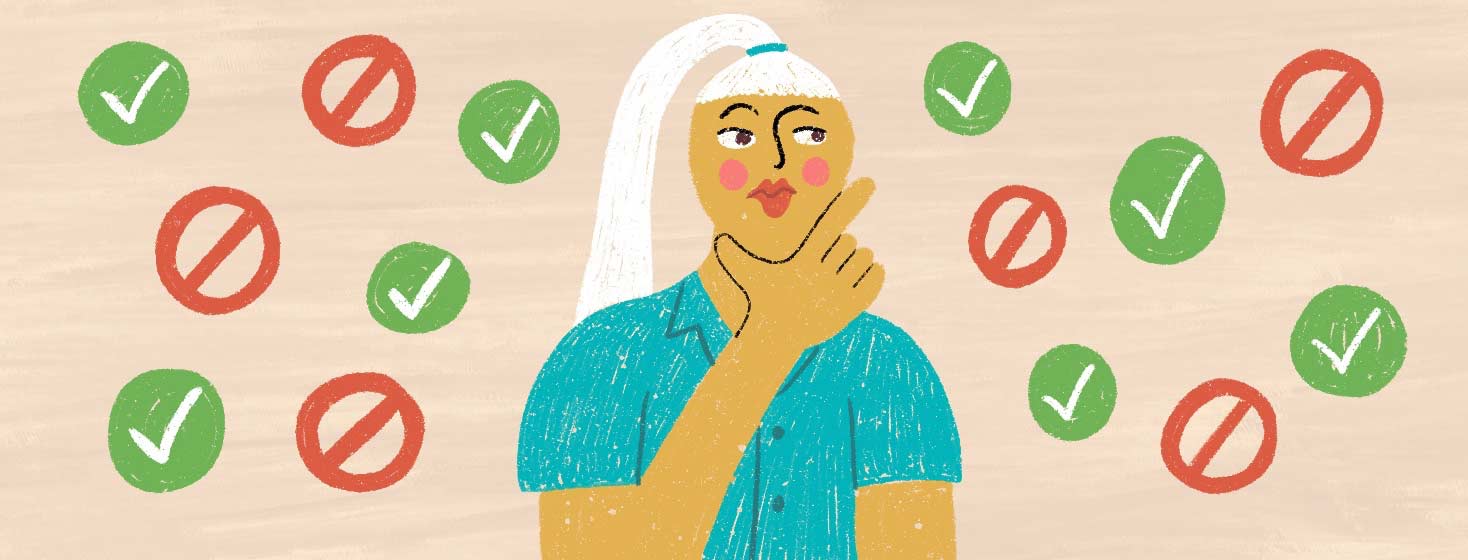How to Help Someone Adjust to Life With COPD
So, you have a loved one or friend newly diagnosed with COPD and you are wondering how you can best help them. Here are five things to do and five to not do!
Acceptance and denial
Don’t: Deny they have a lung disease. This may be easy to do as they may look fine. You might be thinking, “Gosh, he/she doesn’t look sick!” Still, their doctor has diagnosed them with chronic lung disease. Some people with COPD may have a hard time accepting that they have it, and it can be challenging to make the necessary lifestyle adjustments to cope with this disease. This is especially true when you don’t have the support of your friends and loved ones. You being in denial too does not help.
Do: Accept their diagnosis. The fact that you are here reading this is a great first step.
Day to day
Don’t: Say things like, “You look great today!" This is a tricky one because under normal circumstances such words are much appreciated. However, when you “look normal on the outside” yet “feel sick on the inside” such words can be hurtful. We also have a list of "Things not to say to someone with COPD."
Do: Say kind things. “How are you feeling today? Is there anything I can help you with?” Perhaps you are planning an outing, and you might say something like, “Feel free to pace yourself if you need to, I’m not in a rush.”
Don’t: Think all COPD days are the same. They are not. A person with COPD may feel great one day and then feel crappy the next. A person with COPD may feel healthy enough to get lots of cleaning done one day and the next day feel crummy and decide to take a day off. This is normal with COPD.
Do: Know people with COPD have good days and bad days. This is so important. People with COPD just need to take a day, and sometimes two or three, to rest, and to let their body heal. It is how it is when you have a chronic disease like ours.
Getting things done
Don’t: Expect them to do everything they used to do. The goal is for anyone with COPD to continue doing their usual activities. But, the reality is some things that he or she used to do are just not possible anymore. Or, they are done with difficulty.
Do: Help them with everyday chores as best you can. Perhaps he used to do the dishes. Or she used to cut the grass. So, it would be greatly helpful for you to do the dishes or cut the grass. Or, even better, it may be a good idea to hire someone to take care of the yard. Or, if your budget allows, perhaps you could hire a housekeeper to help around the house.
Triggers
Don’t: Ignore their COPD triggers.Triggers are those things that may make breathing harder. They may cause flare-ups that require an unscheduled doctor or hospital visit. Strong smells are a common COPD trigger. So, it may be a good idea to not wear strong perfumes or colognes. Incense and candles may also be a no-no in a COPD home.
Do: Know their COPD triggers. Every person with COPD may have different COPD triggers. So, it’s a good idea to learn what triggers your friend or loved one's COPD. Is it mold? So, perhaps you can help get rid of the mold. Is it pollen? Perhaps you can turn the air conditioning on instead of opening the windows. Is it cigarette smoke? Perhaps you can help them quit if they smoke.
Don’t: Smoke in their home. This is a biggy, so I’m putting it in its own don’t line. On a similar note, strong smells can also trigger COPD flare-ups. So, it is a good idea not to wear strong cologne or aftershave.
Learning
Do: Learn as much as you can about COPD. Again, just hanging out here is a great start. You can be a huge help if you know what your loved one or friend's triggers are. You should also know what flare-ups and treatments are.
And, interestingly, COPD talks to you, in a way. When COPD is flare-ups occur, there are certain signs to watch out for. If you spot these signs, you can help them decide when to seek help. You can learn ways to create a COPD friendly house. To learn more on any of these topics you can click on the links provided.
Here for you
So, there are lots of things you can do to help. I could list a lot more do's and don'ts, although, I think this is enough for now. I'm sure our community members may add to this list in the comments below. In the meantime, if you have questions, need support, or just want to start a conversation, you are free to hang out in our FREE community.

Join the conversation